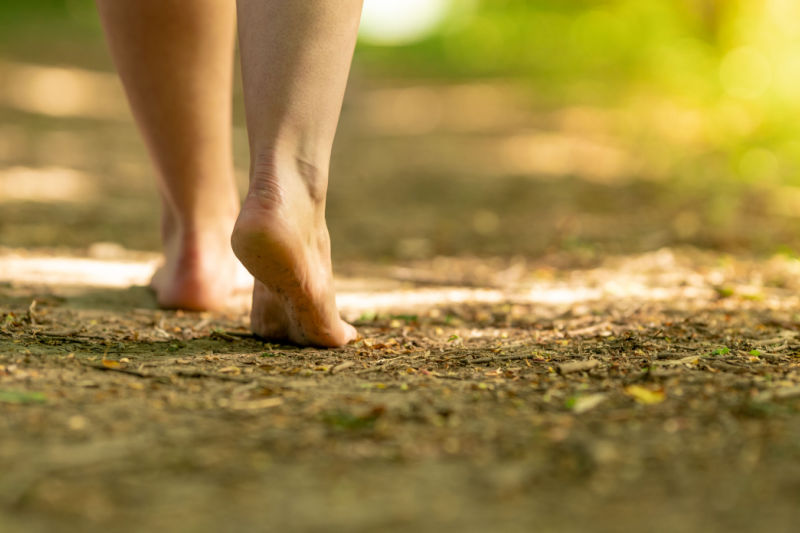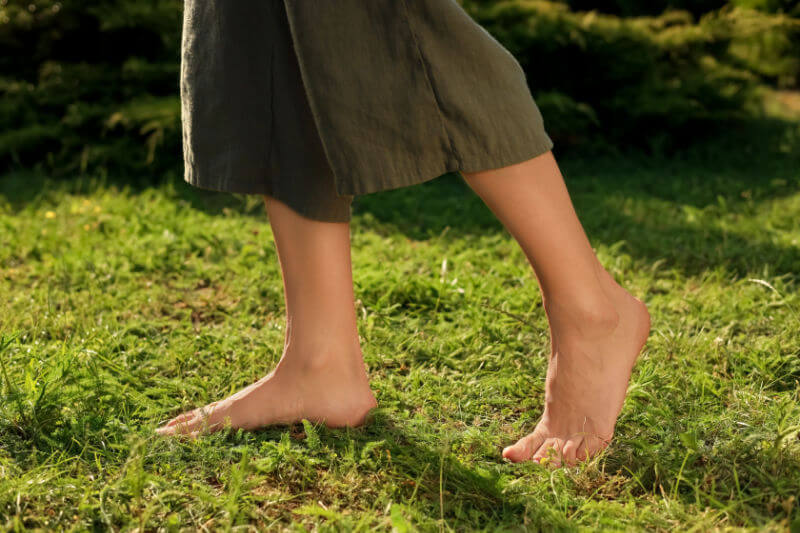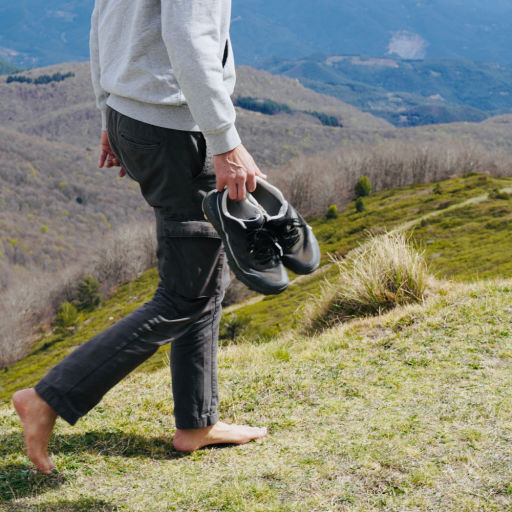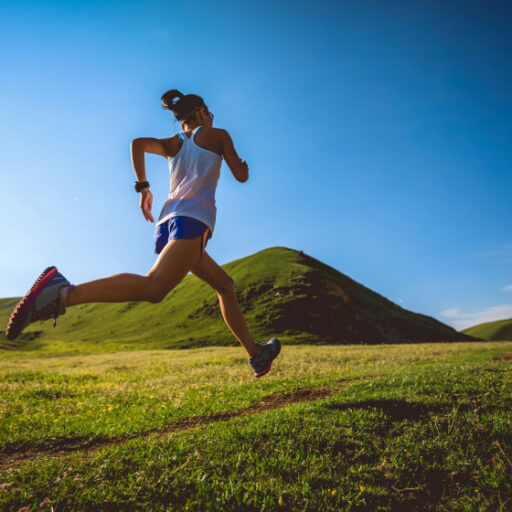Our ancestors lived healthy lives, thanks to their connection with nature. One way to keep yourself fit and strong is by walking without footwear. Let us explore the hidden advantages of walking barefoot, which can improve your health.
What you need to know:
- The science behind walking barefoot
- Walking barefoot: What are its benefits?
- Benefits of walking barefoot on grass
- How to walk bare feet safely?
- What are the potential risks of walking barefoot?
The science behind walking barefoot

Walking barefoot, also known as earthing or grounding, involves allowing your barefoot to come in direct contact with the ground. Everything on this earth has energy, and the same goes for our bodies. This energy, also known as electrical impulses, traverses from the ground onto our bodies, and walking barefoot is the best way to keep this connection going.
Walking barefoot: What are its benefits?
There are many potential benefits of walking barefoot:
- It helps improve your overall posture and is suitable for your spine.
- Walk barefoot on grass instead of concrete roads, as it gives you a better grip, unlike any other footwear.
- Going barefoot early in the morning will improve the health of your bones and positively impact the nervous system.
Reduces inflammation
Walking barefoot on grass has a cooling effect on the body. It also reduces inflammation or muscle pain as the electrons from the earth act on our acupuncture points and free the body radicals, eventually relieving pain.
Can improve sleep
One of the most vital benefits of walking barefoot is that it can improve our sleep and help us feel less anxious. Walking barefoot on the grass in the morning or at night fosters a connection between our body and the earth, and the passing of electrons, which can help you get adequate sleep in the long run.
Strengthen feet
Going barefoot can strengthen your feet’s tendons and stretch the muscles well. In addition, it improves flexibility, strengthens the bone structure and spine, and reduces the scope of sprains in your legs, ankles, and calf muscles.
Benefits of walking barefoot on grass

Walking barefoot on grass can also improve your eyesight and helps calm your nerves when you are anxious or stressed. It keeps your thoughts grounded, enables you to stay present at the moment, acknowledge your surroundings, and appreciate life.
Walking early in the morning during summer is even more beneficial because the cool dew engages your temperature receptors and brings warm blood to your feet. The grass also acts as a cooling agent that may help regulate your body temperature.
Walking on snow during winter for 15-20 seconds can reduce inflammation and improve blood circulation. Always carry a towel and warm pair of socks to put on immediately to reduce the risk of frostbite.
How to walk bare feet safely?
Like any other exercise or physical activity, start slowly so your bones and muscles can adapt well to this practice. Start by walking barefoot in the grass for ten minutes; gradually move on to soil or muddy terrain and walk longer. Ensure you don’t have open wounds, sores, or calluses, which make way for infections and rashes. Let your routine be a mix of indoor and outdoor walking to strike a balance.
What are the potential risks of walking barefoot?
One of the biggest risks of walking barefoot on a muddy field or soft soil is getting bit by insects or ringworm infections due to worms and other fungi/bacteria in the terrain. So, it is imperative to be careful while walking so you don’t stomp on animal or bird feces or get injured by broken shards of glass, nails, or any other sharp object lying on the road or grass. Walking bare feet over an extended period can also lead to corn or hardened calluses. So, care for your feet and properly clean and moisturize them to keep them healthy.
Incorporate these tips and walk barefoot for your overall health and well-being.
Stay tuned to the Activ Living Community. Keep up to date with the latest health tips and trends through expert videos, podcasts, articles, and much more in nutrition, fitness, mindfulness, and lifestyle conditions like Asthma, Blood Pressure, Cholesterol, and Diabetes.
You may also be interested in the following blogs:
- Is walking an exercise to reduce blood sugar levels?
- Diabetic foot care can be a task – Know the right food and exercise to prevent or treat it
Popular Searches
How to lower blood pressure | Fruits good for liver | Unhealthy foods | Ragi Benefits | Basal Metabolic Rate | Acupressure points for High Blood Pressure | Ayurvedic medicine for blood pressure | How to control cholesterol at home | Homeopathy for Asthma | Biological Age | Home remedies for TB | Natural beta blockers | Negative effects of internet | Types of walking | Blood pressure calculator | Blood sugar calculator | BMI Calculator





 1800-270-7000
1800-270-7000








